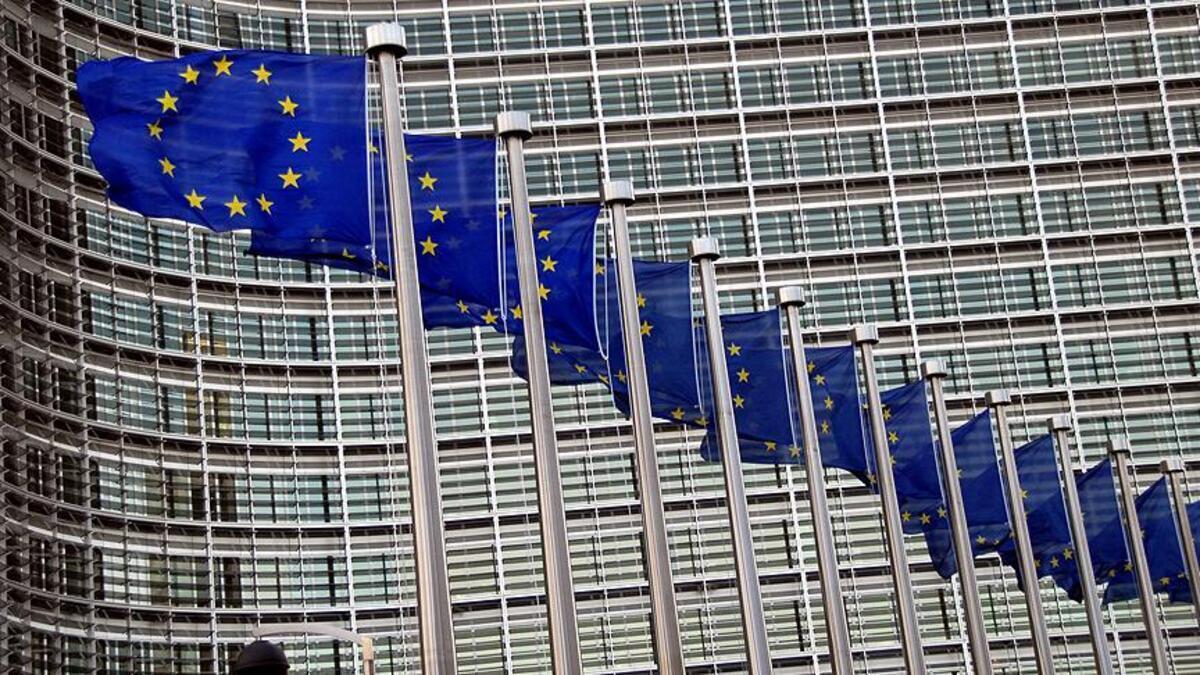
Economic growth in the eurozone jumped sharply in February as coronavirus restrictions were eased, a key survey showed yesterday.
Growth accelerated to a five-month high, IHS Markit said in its closely watched monthly survey,
IHS Markit’s Flash Composite Purchasing Managers’ Index, seen as guide to overall economic health, jumped to a five-month high of 55.8 in February from 52.3 in January. Anything above 50 indicates growth. But it also noted that persistent supply constraints and soaring energy prices also pushed inflation to a record level.
The rise was attributed to the eurozone - the 19 EU countries using the euro - exiting two months of tough restrictions designed to slow the spread of the Omicron variant. Omicron is now the dominant strain in Europe, but governments regard it as less grave than previous variants because widespread vaccinations and booster jabs have muted its impact.
After two months of curbs that hit the eurozone economy, “February saw these restrictions ease to the lowest since November,” IHS Markit said.
The service sector led the newfound optimism, as increased travel and tourism pushed it to its highest level since last November.
Manufacturing increased “also accelerated slightly, attaining the fastest expansion since last September, thanks in part to improved supply availability” and a rise in demand.
However, supply constraints remained, causing backlogs, and average prices for goods and services spiked to the highest level recorded in the PMI surveys.
“Soaring energy costs and rising wages have added to inflationary pressures, resulting in the largest rise in selling prices yet recorded in a quarter of a century of survey data history,” said IHS Markit’s chief economist, Chris Williamson.
“The intensification of inflationary pressures will add to speculation of an increasing hawkish stance” at the European Central Bank (ECB), he said.
The survey showed that growth in the eurozone’s powerhouse Germany was at a six-month high, with an index reading of 56.2.
The second-biggest economy, France, was doing even better, with growth at an eight-month high and an index reading of 57.4.
In Britain, outside the single currency bloc and the European Union, the private sector picked up at the fastest pace since June 2021, as spending on travel, leisure and entertainment rose.
“The surge in the eurozone flash Composite PMI for February suggests activity is recovering well from the pandemic-related weakness over the winter,” said Andrew Kenningham at Capital Economics.
“Having regained its pre-pandemic level in Q4 2021, the eurozone economy is likely to expand at a reasonable pace in the first quarter of this year and should accelerate in the next two quarters as tourism, travel and hospitality get back to normal.”
Inflation in the eurozone hit a record high in January at 5.1 percent annually and the ECB is under growing pressure to tighten monetary policy.
“The PMI suggests the winter economic dip could be much milder than expected, labour market pressures continue to build and second-round effects are resulting in more broad-based price pressures at the moment,” said Bert Colijn at ING.
“Expect this to add to hawkish pressures ahead of the ECB’s March meeting.”